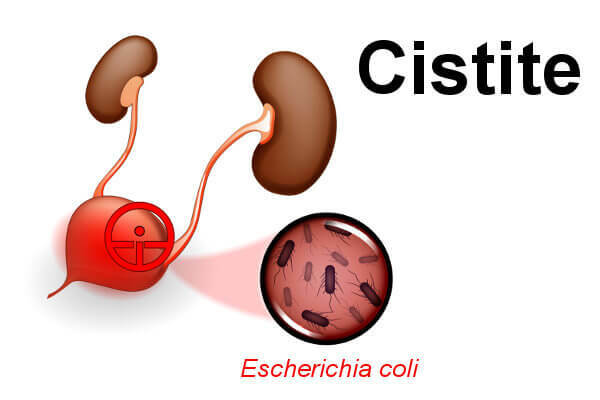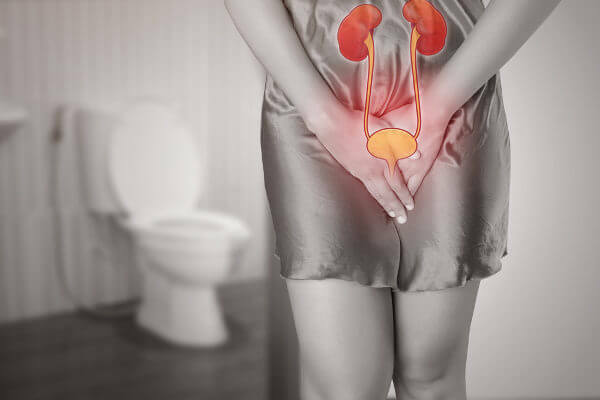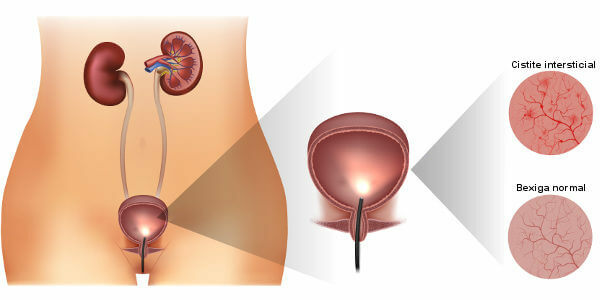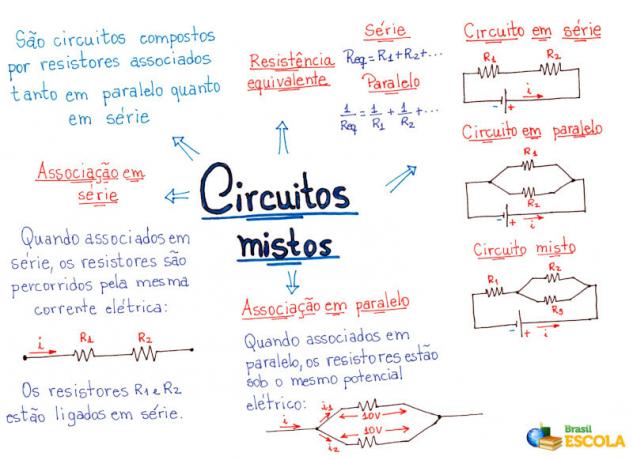THE cystitis, also called low urinary tract infection, is a diseaseinflammatoryorinfectious of the urinary bladder, the organ responsible for storing urine before its elimination to the external environment. Cystitis is usually triggered by colonization of the bladder by bacteria present in our intestine, the main one being the Escherichia coli.
It is noteworthy that the bacteria can not only affect the bladder, it can also affect other organs of the urinary system, such as the urethra and the kidneys. In this case, we have a case of urethritis and pyelonephritis, respectively.
Read too:Urinary system
→ Causes of Cystitis

One of the main bacteria causing cystitis is Escherichia coli.
THE Cystitis is caused by bacteria that enter the urethra and travel to the bladder. Generally, the bacteria come from the organism itself, mainly from the gastrointestinal tract, being the Escherichia coli the most frequent etiologic agent. This bacteria is responsible for almost 75% of cases of cystitis. Other bacteria can also cause the problem, such as
Proteus mirabilis, Klebsiella pneumoniae and Staphylococcus saprophyticus.Did you know that because the female urethra is shorter than the male urethra and is closer to the anal region, women are at increased risk of developing urinary tract infections? |
→ Is Cystitis Transmissible?
Cystitis is not a communicable disease. It is noteworthy, however, that sexual intercourse can favor the development of cystitis because of the friction between the organs at the time of the act that can help the bacteria to migrate from the anal region to the urethra and, later, reach the bladder. Therefore, one point that reduces the risk of cystitis is to urinate after intercourse, as it can help to eliminate bacteria that may have entered the urethra.
Read too:HPV
→ cystitis symptoms

Cystitis causes pain when urinating, bladder pain, lower abdomen and back, and the need to urinate frequently.
Cystitis can be asymptomatic or it can trigger some very unpleasant symptoms. Here are the main symptoms of this health problem that affects both women and men:
cystitis symptoms |
Pain or burning when urinating |
Pain in the bladder, back and lower abdomen |
Elimination of a small amount of urine with each urination |
Low fever (uncommon symptom) |
Need to urinate more frequently at night |
need to urinate frequently |
Urine containing blood (most severe cases) |
→ Cystitis Diagnosis
The diagnosis of cystitis will be made mainly by analyzing the patient's symptoms and through urine tests that will try to identify if there are bacteria in the urine and what type of bacteria is present. One of the most important diagnostic methods is urine culture, in which urine is collected and a small sample is placed in a culture medium.
If bacteria are present, they will grow in this nutrient medium. After performing the urine culture, it is important to perform the antibiogram in order to determine which antimicrobial will be most effective in treating that infection.
Read too: Chronic kidney failure
→ Cystitis treatment
Cystitis is triggered by the colonization of the bladder by bacteria, and treatment is therefore aimed at eliminating these microorganisms. The drugs used are antibiotics, which must be taken at the correct time and for the time recommended by the doctor. It is noteworthy that even if the symptoms have ceased, the treatment must be continued for the time established by the physician, as this ensures the complete destruction of the bacteria.
Read too: The danger of superbugs
→ Cystitis prevention
Cystitis is an infection or inflammation of the bladder that can be prevented with a few simple steps. The table below presents some important tips to prevent this very common health problem:
Tips to prevent cystitis |
Always drink plenty of water. |
After intercourse, always remember to empty your bladder. |
When cleaning themselves after going to the bathroom, women should keep in mind the importance of always cleaning from the front to the back. |
Avoid very tight clothing and underwear that retain heat and moisture. |
Women should always remember to change the pad often. |
Urinate whenever you feel like it, always avoiding retaining urine for a long period of time. |
→ Cystitis in pregnancy
Cystitis is a condition that affects about 1% to 1.5% of pregnant women. Once the diagnosis is made, treatment should be started as soon as possible to avoid possible complications, for example, the migration of bacteria from the bladder to the kidney region. It is noteworthy that some medications are not suitable for pregnant women, however, there are safe antibiotics for these cases.
→ interstitial cystitis
Interstitial cystitis, also known as painful bladder syndrome and chronic pelvic pain syndrome, is different from the acute cystitis that has been treated in this text. In interstitial cystitis, what is observed is that it is a chronic inflammatory disease, without a completely known cause.

Interstitial cystitis causes pain especially when the bladder is full.
In this situation, there is an increase in bladder sensitivity. Its symptoms are bladder pain, pelvic pain, increased urinary frequency and urgency, difficulty in urinating, and nocturia (frequent urination during the night).
The pain and discomfort is prolonged, this being when observed for more than six months. Some patients perceive increased pain with the consumption of some foods and beverages, especially spicy and acidic foods, alcoholic beverages and foods and beverages with caffeine.
To make the diagnosis, it is essential to analyze the symptoms and exclude the diagnosis of other diseases, such as cystitis triggered by bacteria. After diagnosis, treatment will be done in order, mainly, to control the symptoms of the problem. Interstitial cystitis has periods of crisis and periods of remission, so it is essential to find out what intensifies the problem and avoid habits that can trigger pain.
By Ma. Vanessa Sardinha dos Santos


